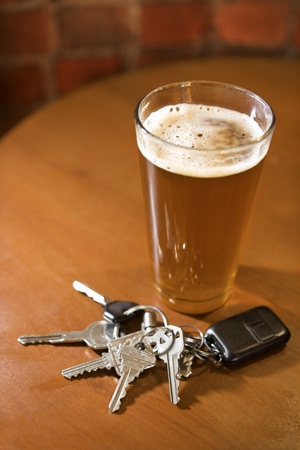Driving and Autos: Driving Under the Influence
Drunk Driving Laws
The legal limit for blood alcohol content is a stringent 0.05 percent. The minimum drinking age is 16, two years under the minimum driving age of 18.
Sobriety Test
If you get caught driving under the influence, you’ll be given a Breathalyzer test. If your blood alcohol level is over the legal limit, the police will take you to the police station, where you’ll be processed for drunk driving. You may be given a blood test at the station.
You do have the right to refuse to take a Breathalyzer test, but it is not advisable. In these cases, the police can still take you to the station or a hospital and administer a blood test, even against your will. While you may be able to contest the results of a Breathalyzer test in court, a blood test is much more accurate and usually non-contestable.
Penalties for Driving Under the Influence
If you are charged with drunk driving, you will lose driving privileges for six months and pay a fine that could be up to several thousand euros, although the amount varies. In some cases, your car could be confiscated and sold.
You may also be required to undergo more onerous processes in order to get your license back. If your blood alcohol level was over 1.6 percent, you may have to take a special test, called a Medizinisch-Psychologische Untersuchung. This test involves three components. The first is a physical test that examines hand-eye coordination. The second is a physical examination and blood test. The blood test is strict enough that the driver must not drink alcohol for several months.
The third part of the test is the most difficult. It is an extensive question-and-answer session with a psychologist, who judges whether the driver is able to control his or her drinking. To pass this section, you must get all answers right, and you may need to take a class or get one-on-one coaching from a psychologist to prepare. This can cost thousands of euros. Drivers must wait eight weeks for the results of this test; if you fail, you must wait another four months to try again.
While you won’t likely go to prison for your first offense, a second offense could result in a harsh prison sentence.
Drugs and Driving
Germany uses sweat tests to determine if you have been driving under the influence of drugs. These are cheaper for police jurisdictions, but not very accurate—anyone who uses drugs may set these off, regardless of whether the level is high enough to cause impairment.
Unless you have caused an injury, you will generally not face criminal charges for driving under the influence of drugs—only civil charges. These are not very serious—usually equivalent to a speeding ticket.
If you did injure someone while driving under the influence of drugs, the police may work to find further evidence that your driving skills were impaired, and you may face a more serious criminal violation.
Social Attitudes Toward Drinking
Germany is generally a permissive society when it comes to drinking. Beer is as plentiful and cheap as water, and the legal drinking age is 16. Public drinking is legal and common.
However, the Germans are not permissive toward drunk driving and come down very harshly on offenders, even if it is their first offense.
Article written for World Trade Press by Jennifer Williamson.
Copyright © 1993—2025 World Trade Press. All rights reserved.

 Germany
Germany 